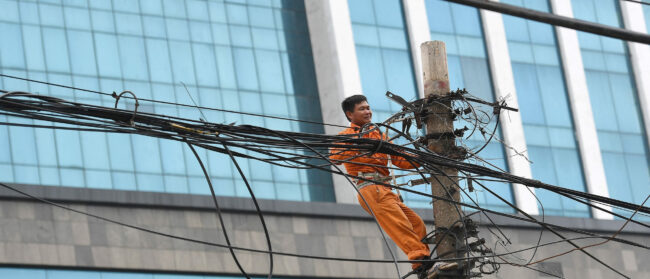Hello readers! I arrived in Cambodia almost exactly one year ago, on my birthday, to enjoy two weeks of hotel-bound quarantine. Since then, significant progress in fighting Covid-19 has led to the Cambodian government’s announcement on 15 November that fully vaccinated travelers can now enter the Kingdom without spending time in quarantine, needing only a negative rapid test.
The Kingdom is opening up, even though in September the tourist haven of Siem Reap was shut down for three weeks to contain Covid-19 outbreaks. Also, the Water Festival celebration marking the reversal of the Tonle Sap river that was to be held this week has been suspended.
Yet around Phnom Penh there seemed to be a sense that we had done our best to slow the spread of the pandemic by wearing masks and receiving two or three doses of whatever vaccinations were available. The government has become less transparent about caseloads and the pandemic’s health risks have been easier to ignore, even as the economic woes for many persist. People in the city could get on with life. I found myself going to indoor restaurants on occasion, hanging out with larger groups of people than I had in months and choosing my stylish cloth mask over the less comfortable N-95 with straps digging into my ears.
Alas, a tickle in the back of my throat Monday morning became a concern by the afternoon. I dutifully took a rapid test and saw two pink lines appear, signalling I was positive for Covid-19. Another test confirmed the result.
I had received so many negative Covid test results by this point, it was almost a relief to know the things actually worked. While I’d been far from the perfect steward of public health, catching my case with the rapid test also affirmed all the little actions and small sacrifices I’d engaged in to prevent spreading the virus since the pandemic began. But I had avoided Covid-19 for so long I started to feel as if I’d never get it.
I will now celebrate my one-year Cambodia anniversary the same way I started my life here: in quarantine. I was embarrassed by the need to reach out to the people I’d met with in the past week to inform them of the virus exposure, potentially disrupting their plans and adding an extra jolt of stress to their lives. To their credit, everyone was extremely kind and understanding. “No need to apologise,” one person told me. “It’s the risk that goes with getting out of our homes these days.”
I’m a young, healthy person and I expect to recover soon from my mild case. Many people, of course, have far worse symptoms. More than 2,880 people have died in Cambodia from Covid-19 and related complications as of this week, including a Khmer friend’s grandmother who passed away just a few days before my own diagnosis.
I’ll still enjoy life in the new normal when I exit quarantine, but with more caution. As I rest up, please enjoy the week’s feature stories:
The economic impact of the pandemic has increased loan defaults in Vietnam, leading some financial institutions to harass and intimidate borrowers to repay them, Govi Snell reports. While the government has sought to reduce borrower obligations, the consumer finance industry frequently ignores these directives, engaging in practices similar to loan sharks.
To commemorate World Children’s Day, the Globe‘s Anton L. Delgado spoke with Sotheary El of Save the Children Cambodia to discuss the most important issues facing the Kingdom’s youth and the next steps for the country’s education system as schools reopen.
The presidential bid of Ferdinand “Bongbong” Marcos Jr., son of the Philippines’ former dictator, summons myths from the Marcos family’s carefully crafted and self-serving narrative, writes opinion contributor Jocelyn Martin of Ateneo de Manila University. Martin says the forthcoming election is another attempt by the Marcos family to reshape its legacy through the manipulation of public memory.
The Korean television drama ‘Squid Game,’ a Netflix sensation, parallels the horrors of debt and economic desperation Thai residents and migrant workers experience, exacerbated by a pandemic-ridden economy, columnist Mark S. Cogan writes. Crushing household debt has been a factor in Thailand’s high rate of suicides and a post-pandemic economy will need systemic solutions to help alleviate the issues.
Vietnam may be embracing renewable energy, but the country lacks the capacity to use all of its generated power due to an overloaded electrical grid, contributor Mark Barnes reports. Vietnam is turning to large-scale battery technology for renewable energy storage, developing nickel mines and other infrastructure that could lead the way in Southeast Asia’s nascent battery storage industry.


